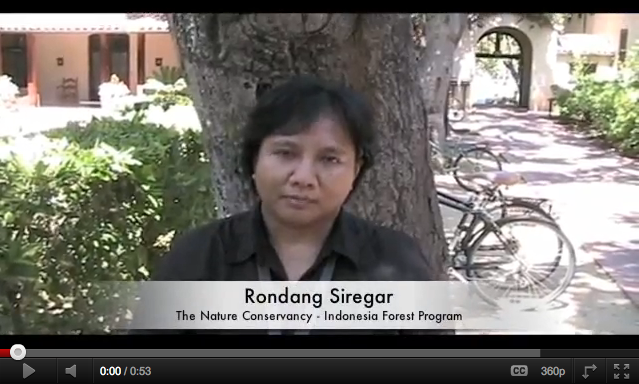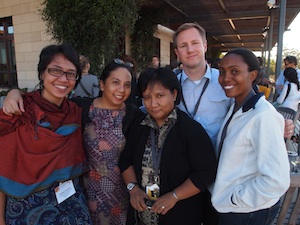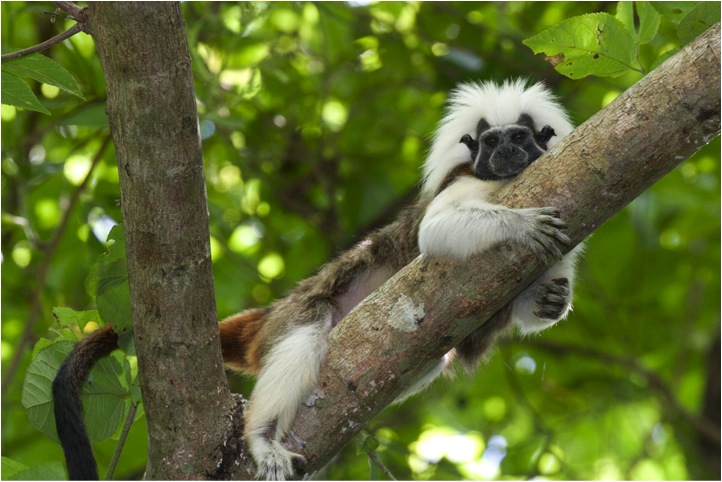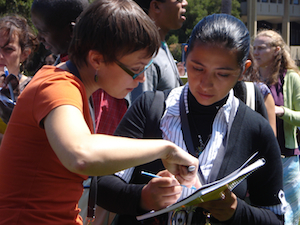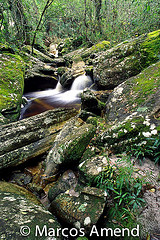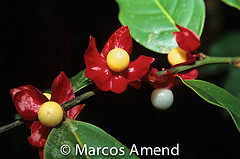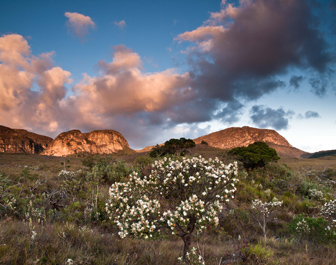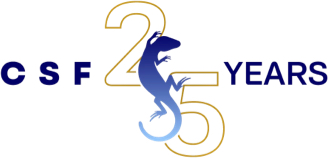News
Rondang Siregar is an Indonesian biologist whose passion is protecting the wild orangutans of her native country. She recently attended CSF’s 13th annual Economic Tools for Conservation course at Stanford University where she and 27 other conservationists from around the world gathered to learn how economic tools could help them succeed. Watch the video below to hear Rondang explain how CSF’s economic training, combined with her skills as a biologist, could help her protect these noble and endangered apes.
Thanks to World Wildlife Fund's Russel E. Train Education for Nature (EFN), nine environmental professionals from seven countries were awarded the opportunity to attend this month’s international Economic Tools for Conservation course at Stanford University. EFN provides financial support to professionals and organizations worldwide for higher education, short-term training, and practical mentoring programs.
Proyecto Tití is a Colombian non-profit that integrates wildlife and forest preservation with education and community development. Proyecto Tití’s work centers around the cotton-top tamarin monkey, Colombia’s cutest, but most threatened, primate.
Each year conservation professionals from around the world join Conservation Strategy Fund for a two-week course where they learn to use economics to be more strategic and successful in their work. This year students will be coming from 12 countries and 5 continents to participate in this one-of-a-kind course being held August 15th-26th at Stanford University. Watch the video below to find out more about the course and what participants from last year plan to do with what they learned. You may also click here to watch it on our You Tube site.
Learn how the calculation of financial incentives protects nature.
For the full article (in Portuguese), please click the link below:
http://planetasustentavel.abril.com.br/noticia/ambiente/quanto-ganha-qu…
On March 29th and 30th, 2011, CSF Brazil Technical Manager Leonardo Fleck led a conservation economics workshop at an event organized by the TEEB initiative (The Economics of Ecosystems and Biodiversity) from the United Nations Environment Program. The event was held in Corrientes, Argentina, and was co-sponsored by the Avina Foundation. The workshop aimed to promote the use of economics in environmental conservation with a focus on climate change. The workshop was attended by 80 participants from various governmental and non-governmental organizations, including representatives from Argentina, Chile, Bolivia, Brazil, Uruguay, Paraguay and Bolivia. Leonardo taught principles of microeconomics, environmental valuation and cost-benefit analysis.
Dear CSF Course graduate,
How has economics helped you protect nature?
Have you used the tools you learned in your CSF course in your work?
Tell us your story, and we will help you share it with the CSF community and the world. The author of the best story will win a brand new Apple iPad!
For the full details, click here.
John Reid discusses California's Proposition 23 and what it would mean for the fate of rain forests in an op-ed featured in Santa Rosa's Press Democrat. "California has always led on environmental policy, but never in the wrong direction." To read the article, click here.
Who is CSF and how do we use economics to protect nature? Mongabay conducted an interview with CSF Founder John Reid to find out. You can click to read the article here.
Conservation Strategy Fund and the Duke Environmental Leadership (DEL) Program are pleased to announce the course Economics of Tiger Conservation in partnership with the World Bank Institute and the Global Tiger Initiative. This one-week course held in North Carolina this November will help environmental professionals working on tiger conservation issues gain knowledge and technical skills for conducting applied economic research in support of endangered species protection.

